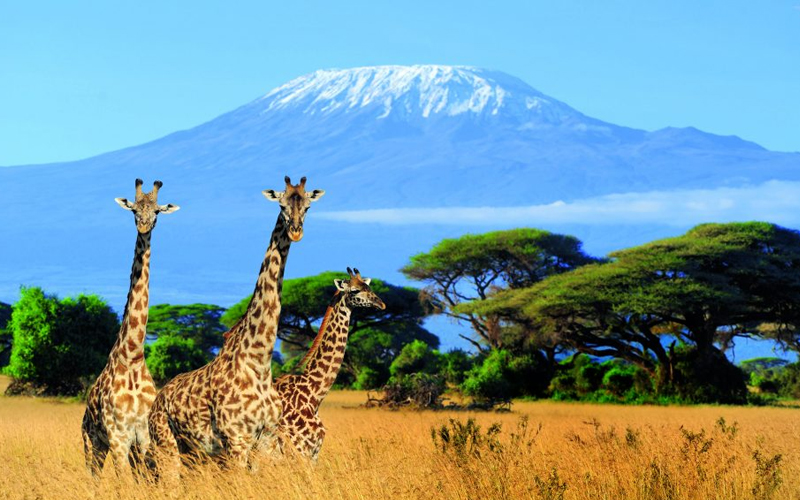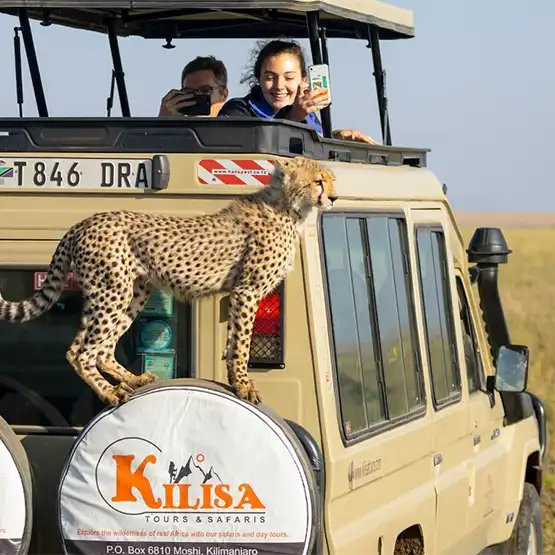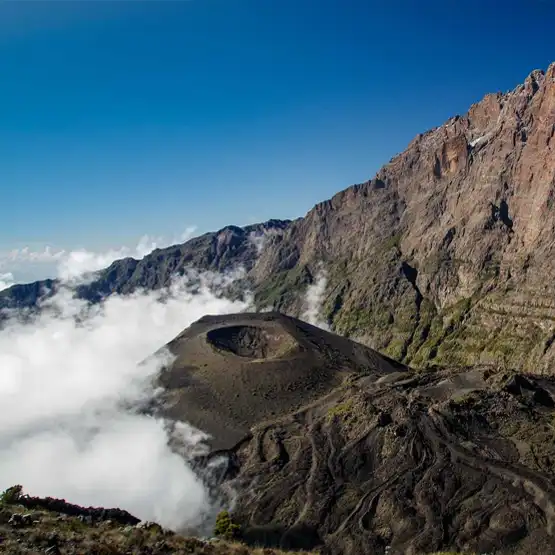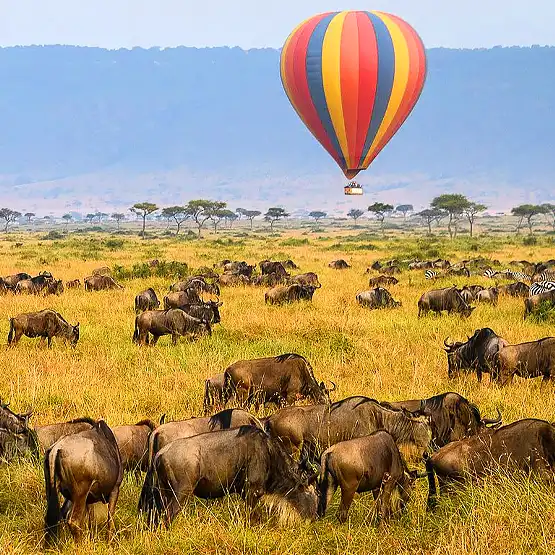Eco-tourism Tanzania Safari 2025
Tanzania is one of the most beautiful countries on earth, offering an array of diverse landscapes, incredible wildlife, and vibrant cultures. While traditional tourism has long been a staple of the country’s economy, eco-tourism has risen in popularity in recent years as travelers seek ways to explore Tanzania’s natural wonders responsibly and sustainably. In this article, we’ll take a closer look at eco-tourism in Tanzania, its benefits, and how you can enjoy a wildlife adventure while supporting environmental conservation and local communities.
What is Eco-Tourism?
Eco-tourism refers to a form of sustainable travel that aims to minimize negative environmental impacts while promoting the preservation of natural resources and supporting local communities. This type of tourism focuses on visiting places that are ecologically fragile but have unique biodiversity and cultural significance. In Tanzania, eco-tourism allows travelers to experience the beauty of its wildlife and landscapes in a responsible manner.
Tanzania’s Unique Biodiversity
Tanzania is a country of stunning natural diversity. From the savannahs of the Serengeti to the lush forests of the Eastern Arc Mountains, the country offers a wide range of ecosystems that support an extraordinary variety of wildlife.
-
Diverse Ecosystems: Tanzania is home to rainforests, savannahs, wetlands, and coastal ecosystems, all teeming with diverse species.
-
Rich Wildlife and Endemic Species: The country is renowned for its incredible biodiversity, including the Big Five (lions, elephants, buffalo, leopards, and rhinos) and many rare species such as the African wild dog, cheetah, and various bird species.
-
Key National Parks and Reserves: Tanzania’s national parks, including the Serengeti, Ngorongoro Crater, and Selous Game Reserve, offer unparalleled wildlife experiences, making it a perfect destination for eco-tourism.
Eco-Tourism and Its Benefits
Eco-tourism is more than just an enjoyable travel experience – it has wide-reaching benefits for the environment and local communities.
Environmental Conservation
Eco-tourism promotes the conservation of ecosystems and wildlife habitats. By supporting eco-friendly accommodations and low-impact travel practices, tourists help minimize their environmental footprint, ensuring that the beauty of Tanzania’s wilderness is preserved for future generations.
Community Involvement and Benefits
One of the key aspects of eco-tourism is its emphasis on community-based tourism. Local communities often play an integral role in managing eco-tourism initiatives, from operating accommodations to guiding tours. This creates a direct economic benefit for communities while providing travelers with authentic cultural experiences.
Economic Contributions
Eco-tourism contributes significantly to the economy, particularly in rural areas where it creates jobs and stimulates the local economy. Tourism helps fund conservation efforts, support infrastructure development, and sustain local livelihoods.
Sustainable Safari Practices in Tanzania
When it comes to safaris, sustainability is key. Here are some ways Tanzania has embraced eco-friendly safari practices:
Eco-Friendly Safari Accommodations
Tanzania offers a range of eco-friendly accommodations, from luxury eco-lodges to more affordable sustainable campsites. These lodges often use renewable energy sources, recycle waste, and incorporate local materials to minimize their environmental impact. Staying at such accommodations ensures that your visit contributes positively to conservation efforts.
Low-Impact Travel Options
Travelers can opt for low-impact safari options, such as small group safaris or walking safaris, which allow for a more intimate connection with nature while minimizing the number of vehicles and other disturbances.
Ethical Wildlife Viewing and Behavior
Ethical wildlife viewing is an essential part of eco-tourism. In Tanzania, responsible safari operators ensure that tourists follow guidelines to minimize disturbances to wildlife, such as keeping a safe distance and refraining from feeding animals.
Best Eco-Tourism Destinations in Tanzania
Tanzania boasts some of the most ecologically significant and pristine wilderness areas in Africa. Here are some top eco-tourism destinations to consider in 2025:
-
Serengeti National Park: Famous for the Great Migration and abundant wildlife, Serengeti is a UNESCO World Heritage site that prioritizes conservation efforts.
-
Ngorongoro Crater: This “Garden of Eden” is a natural wonder that offers some of the best wildlife viewing in the world while supporting conservation and local community development.
-
Tarangire National Park: Known for its large elephant herds, Tarangire offers eco-tourism visitors a chance to witness diverse wildlife in a stunning, unspoiled landscape.
-
Selous Game Reserve: As one of the largest wildlife reserves in Africa, Selous offers a more remote and off-the-beaten-path eco-tourism experience.
Conservation Efforts Supported by Eco-Tourism
Eco-tourism plays a vital role in funding and supporting conservation initiatives in Tanzania. Some of the efforts supported by eco-tourism include:
-
Anti-Poaching Initiatives: Eco-tourism revenue helps fund anti-poaching efforts to protect endangered species and combat illegal wildlife trade.
-
Wildlife Corridors and Protection Programs: Revenue from eco-tourism supports the creation of wildlife corridors, helping animals move safely between protected areas.
-
Preserving Biodiversity: Eco-tourism contributes to preserving Tanzania’s biodiversity by funding research and conservation programs aimed at protecting ecosystems and species.
The Role of Local Communities in Eco-Tourism
Local communities are at the heart of Tanzania’s eco-tourism success. Many eco-tourism programs involve community-based tourism models that allow locals to benefit directly from tourism. This includes:
-
Cultural Encounters: Travelers can learn about the traditions of local tribes, such as the Maasai and Hadzabe, gaining insights into their way of life while supporting their economic empowerment.
-
Economic Empowerment: By working as guides, artisans, or lodge staff, local community members gain employment and contribute to their communities’ growth.
Eco-Tourism Activities for Travelers
Eco-tourism in Tanzania offers a range of activities that allow travelers to connect with nature in a responsible way. Some popular activities include:
-
Walking Safaris and Nature Treks: These safaris provide a closer look at the landscape, offering a unique way to experience Tanzania’s wilderness.
-
Bird Watching and Photographic Safaris: Bird watching and photography are popular activities, allowing visitors to observe wildlife and capture stunning moments in an eco-friendly manner.
-
Visiting Eco-Lodges and Sustainable Campsites: Travelers can experience life in eco-lodges that prioritize sustainability and environmental consciousness.
Eco-Tourism Accommodation in Tanzania
When choosing accommodation for your eco-tourism adventure, consider staying at eco-lodges, glamping sites, or sustainable resorts. These accommodations are designed to minimize their impact on the environment while providing a comfortable and immersive experience. Many of these lodges use solar energy, water conservation methods, and locally sourced materials to reduce their carbon footprint.
How to Travel Responsibly in Tanzania
Traveling responsibly is crucial in eco-tourism. Here’s how you can make the most of your trip to Tanzania while minimizing your environmental impact:
-
Support Local Businesses: Choose eco-tourism operators and accommodations that support local communities and conservation efforts.
-
Respect Wildlife and Local Cultures: Follow ethical wildlife viewing practices and respect the customs and traditions of the communities you visit.
-
Minimize Environmental Impact: Avoid plastic waste, conserve water, and reduce your carbon footprint during your travels.
The Future of Eco-Tourism in Tanzania
The future of eco-tourism in Tanzania looks bright, with more travelers seeking sustainable and responsible ways to explore the wild. Innovations in eco-tourism, such as low-impact travel technologies and community-based initiatives, will continue to drive growth in this sector. However, challenges such as climate change and poaching still threaten Tanzania’s wildlife, making continued support for eco-tourism efforts essential.
Eco-tourism in Tanzania offers a sustainable way to explore the country’s stunning landscapes and diverse wildlife. By supporting eco-friendly practices, contributing to conservation efforts, and engaging with local communities, travelers can help ensure that Tanzania’s natural beauty is preserved for generations to come. In 2025, eco-tourism will continue to play a vital role in the country’s tourism sector, offering unforgettable experiences while supporting the planet and its people.
FAQs
-
What is eco-tourism?
- Eco-tourism is responsible travel to natural areas that conserves the environment and supports local communities.
-
How does eco-tourism help conserve wildlife in Tanzania?
- Eco-tourism funds conservation efforts, including anti-poaching initiatives and habitat preservation, helping to protect Tanzania’s wildlife.
-
Are there eco-friendly accommodations in Tanzania?
- Yes, there are many eco-lodges and sustainable campsites in Tanzania that prioritize environmental sustainability.
-
Can I experience Tanzanian culture through eco-tourism?
- Yes, eco-tourism often includes cultural encounters with local tribes, providing insight into their traditions and way of life.
-
How can I travel responsibly in Tanzania?
- To travel responsibly, support local businesses, respect wildlife, minimize waste, and follow ethical travel practices.






